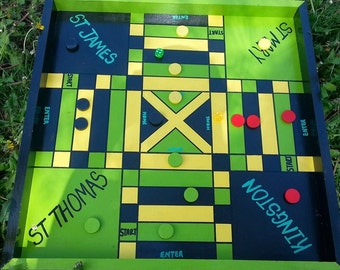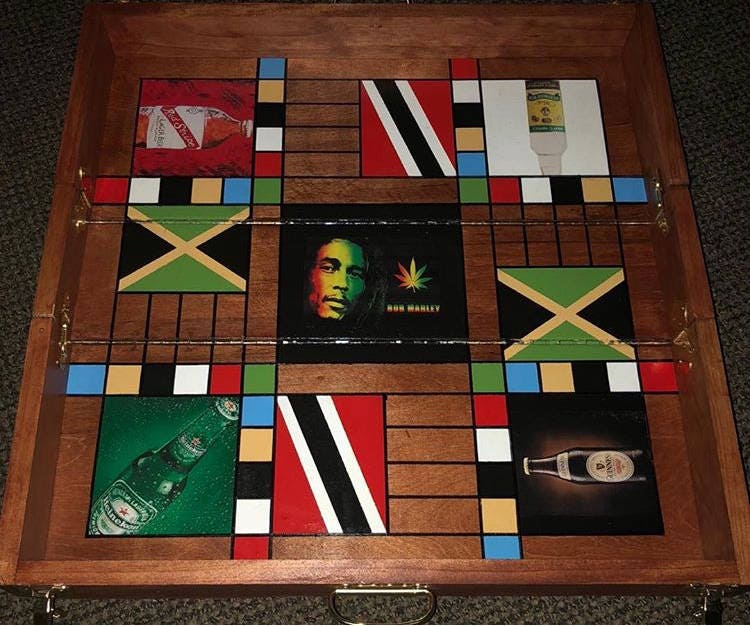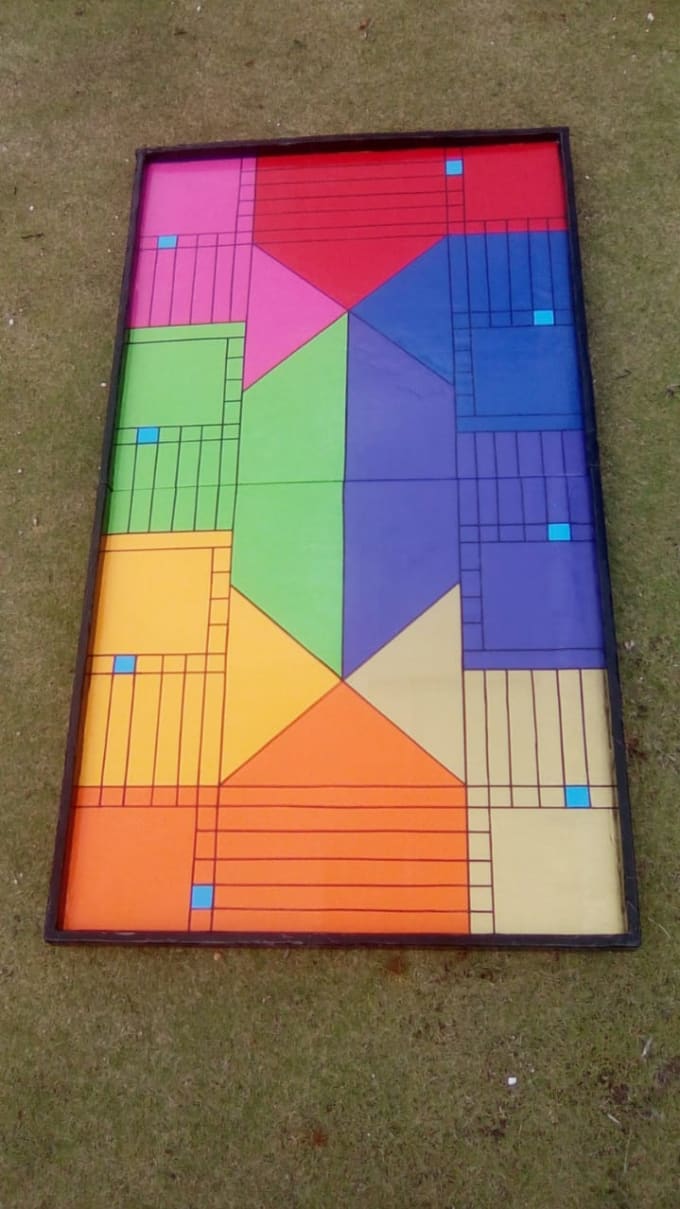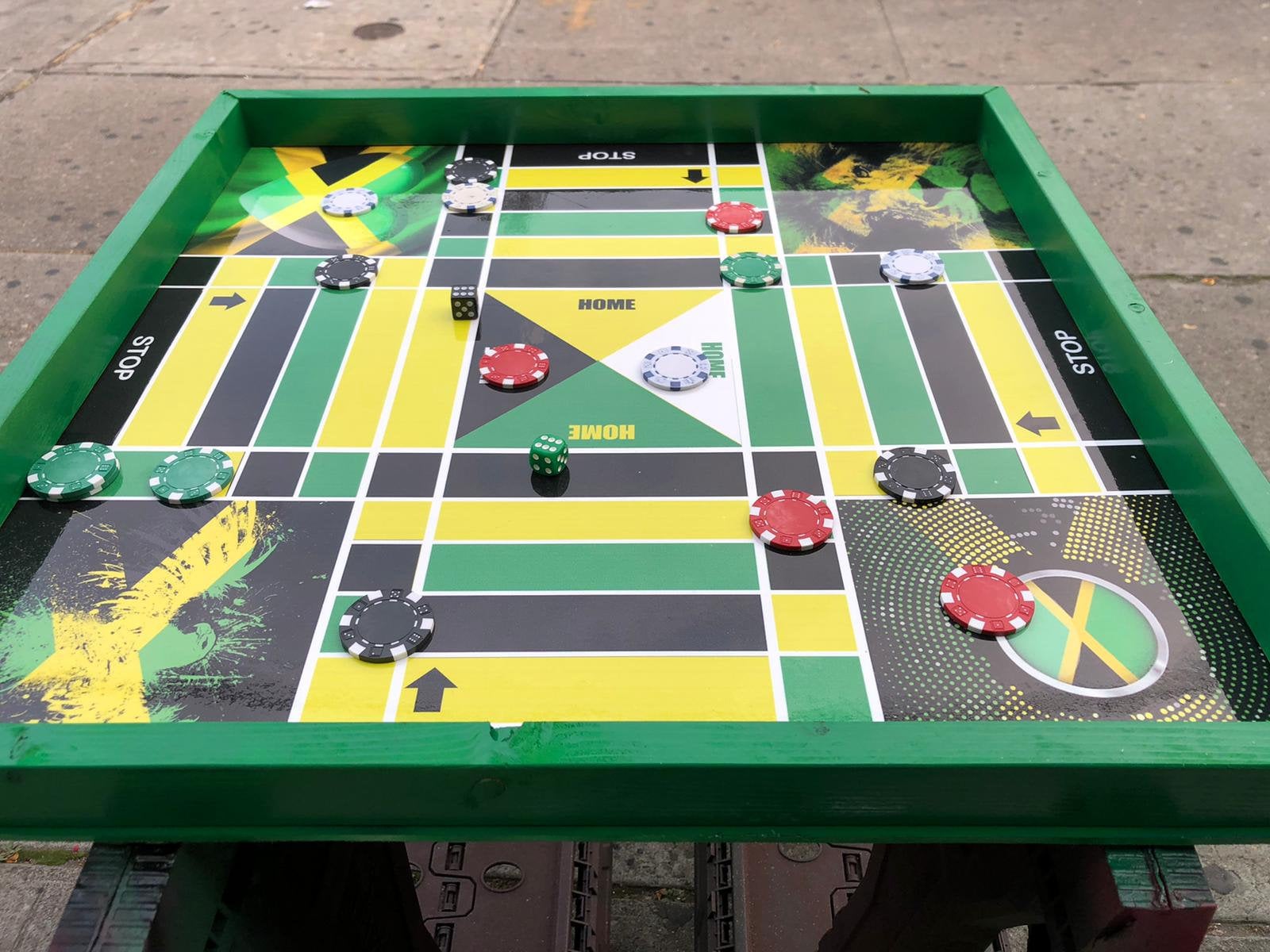Do you love the Caribbean culture? Are you curious about the unique traditions of Jamaica? Have you ever heard of ludi and wondered what it is? If so, this blog post is for you! Learn all about ludi in Jamaica – from its history to its traditional customs – and discover why it’s such an important part of Jamaican culture.
Introduction to Ludi

Ludi, also known as Ludo or Ludy, is a classic board game that has been played in Jamaica for generations. It is believed to have originated in India, but Jamaicans have adopted it as their own and it remains a popular pastime today. The game is played by two to four players using four pieces per player and a game board. The goal of the game is for each player’s pieces to travel around the board and reach the center before their opponents do. It’s an exciting game of strategy that encourages players to think ahead and plan their moves carefully in order to win!
What is Ludi?

Ludi is a board game played between two to four players. The aim of the game is to move your markers around a board following the roll of two dice. The game originated in India and was later modified when it got to England in 1896. Jamaican Ludo, also known as Ludi, is based on the Indian version of Pachisi, but with its own modifications and rules. Players take turns rolling two dice and advancing their markers accordingly. The winner is the first player whose pieces all reach home base without being blocked by opponents. Ludi is an exciting and fun board game that can be enjoyed by friends and family alike!
History of Ludi in Jamaica

Ludi is a popular board game in Jamaica, believed to have originated in India. In Jamaican culture, Ludi is usually made with a raised boarder to keep the dice and counters from being lost. The game is enjoyed by two to four players and uses two dice and 16 counters per player. It’s often home-made, featuring intricate designs that make it fun and unique to play.
For generations, Jamaicans have enjoyed playing Ludi as a way to bring family and friends together for quality time and competition. It’s become one of the island’s favorite pastimes and is seen as a way of connecting with friends over games, conversation, laughter, food, and music.
Today Ludi remains an important part of Jamaican culture – proving itself both timeless and entertaining after all these years!
The Traditional Rules of Playing Ludi

Ludi is a traditional Jamaican board game that has been around for centuries. It is played between friends and family, usually on a special wooden board. The aim of the game is to be the first player to get all four of their markers around the board from start to finish.
Players take turns in a clockwise order, with the highest throw of the die deciding who goes first. In each turn, players can decide which piece they want to move according to the number on their die roll. Blocks are created when two or more pieces are placed onto the same square; only its creator is allowed to land on or move around that block. The winner is declared when they have managed to get all four markers around the board from START to FINISH before any other player does so.
Ludi offers hours of fun and friendly competition among friends and family alike – perfect for those quarantine days!
The Different Types of Ludi Games

Ludi is a classic board game that originated in Jamaica and is still popular to this day. It involves two to four players who move their markers at the roll of two dice. The aim of the game is to avoid obstacles and make it back to home base first. Traditionally, Jamaican ludi featured a 24-inch by 24-inch board, 16 markers (four sets of four colors), two dice and a set of basic rules. To start, each player takes turns rolling the dice and adding up their count before moving their marker accordingly. As they progress along the board, they must avoid obstacles while trying to be the first one back on home base. The winner is declared once all players have reached home base or when one player has managed to land exactly on the last spot before home base, also known as ‘ludo’. As ludi’s popularity continues in Jamaica today, there are now several different versions available for purchase online – like IanLudiBoards’ Jamaican Ludo Reggae Legends Edition v2.0 – perfect for family game nights!
How to Play the Classic Game of Ludi

Playing Jamaican Ludo, also known as Ludi or Loodi, is a fun and simple game for two to four players. It’s an adaptation of the classic Indian board game Pachisi. The goal of the game is to move all your pieces around the board and back to your starting space before any other player does. To get started, each player takes a different color set of pieces and places them in their home base.
The player who rolls the highest number on a die goes first. On their turn, they roll again and then move one piece out of their home base depending on the number that was rolled. Players can only move one piece per turn, but they can knock out an opponent’s piece if they land on the same spot as it while moving around the board. Players can also use shortcuts by using “ladders” or “snakes” that are located throughout the board to help them get ahead quicker!
The game continues until one player has moved all of their pieces back into their home base first – they are then declared the winner! Playing Jamaican Ludo is great fun for people of all ages – make sure you give it a try next time you want to play something new with friends or family!
How to Win at the Classic Game of Ludi

Playing the classic game of ludi is a fun way to spend time with friends and family. The aim of the game is to be the first one to get all four of your counters home. Here’s how it works:
1. All players take turns in a clockwise order rolling one die to decide who goes first. The highest number wins the advantage.
2. Each player starts with four counters that must be moved around the board according to the numbers rolled on the die.
3. Counters can move either forwards or backwards, but they cannot move onto opponent’s counters or their own counters already on the board.
4. When a counter lands on a square occupied by an opponent’s counter, that counter is sent back to its starting point and must be re-rolled before being put back into play again.
5. The first player to get all four of their counters home wins!
So remember: roll smart, don’t land on your opponents’ counters and keep an eye out for shortcuts on your way around the board – you never know when luck might turn your way! Good luck and happy playing!
Benefits and Drawbacks of Playing Ludi

Ludi is a great game for friends and family to play together. It can be enjoyed by people of all ages and offers a fun, strategic challenge that keeps everyone entertained. The main benefit of playing ludi is that it is easy to learn and doesn’t require any prior knowledge or experience in order to get started. In addition, the game can be adapted for different numbers of players without much difficulty, making it flexible to accommodate different group sizes.
However, there are some drawbacks to playing ludi as well. Firstly, the game relies heavily on luck as your success depends on the roll of the dice. This means that winning or losing can come down to pure chance rather than skill or strategy which can make it less satisfying for some players. Additionally, if you are playing with more than four people then it can take a long time to complete one round as each person has their turn before it starts again from the beginning. Finally, because ludi involves counting spaces around the board this may not be suitable for very young children who are still developing their number skills.
Tips for Improving Your Performance at the Game of Ludi

Are you looking for helpful tips to improve your performance in the game of Ludi? Here are some great tips that can help you become a master of this traditional Jamaican board game.
1. Become familiar with the rules and objectives of the game: The aim of Ludi is to get all four counters to home base before any of your opponents. To do this, you must move your pieces around the board using two dice rolls, while avoiding obstacles along the way.
2. Practice makes perfect: As with anything else, practice makes perfect when it comes to playing Ludi! Try playing against friends or family members so you can learn from their strategies and become better at making decisions when it comes to moving your pieces around the board.
3. Use sound strategy: A good strategy is essential for winning at Ludi. Make sure you plan out each move carefully and think ahead about possible moves that your opponents may make in order to counter them accordingly.
4. Keep track of what’s happening on the board: It’s important to keep an eye on how other players are doing so that you can adjust your own strategy accordingly and make sure no one else reaches home base before you do!
5. Don’t be afraid to take risks: Taking risks is key in order to win at Ludi, so don’t be afraid to take chances if they could potentially lead towards victory!
Following these tips will help ensure that you’re well-prepared for every game of Ludi!
Modern Variations on the Classic Game of Ludi
Ludi is a classic board game with a long history. The original version, Pachisi, originated in India and spread to England in 1896, where it was rebranded as Ludo. Modern versions of the game can be played by two to four players and involve moving their markers around the board according to the roll of two dice. The aim of the game is for each player’s pieces to reach their home position before their opponents’ pieces do.
Ludi is a fun and exciting game that can be enjoyed by both children and adults alike. It’s easy to learn and play, making it a great family activity or party game. Playing ludi encourages strategic thinking, problem solving skills, hand-eye coordination and even teaches basic math skills such as counting and adding numbers together. Plus, it provides hours of entertainment! So why not give this timeless classic a try today?
